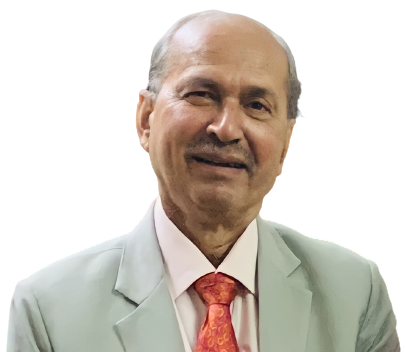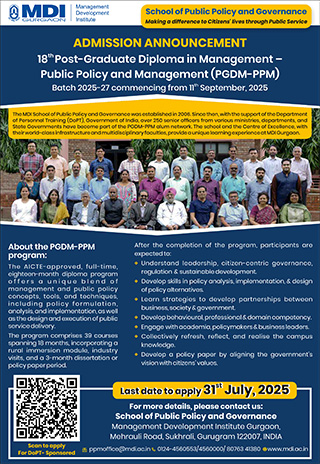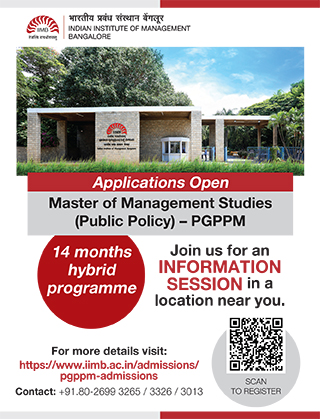whispers in the corridors

IPS Astha Modi is a 2013 batch officer of the Haryana cadre and is currently posted as Superintendent of Police in Kaithal, Haryana. Her mission for the district focuses on combating drug abuse in a holistic manner through enforcement, rehabilitation, prevention, and community engagement.
“It’s not just about arrests, it’s about dismantling the drug network from the top down, treating addiction, empowering communities to take ownership and building long term resilience against narcotics abuse” she explained.
Modi aims to reduce both the supply and demand of narcotics for a lasting impact. To achieve this, a multifaceted strategy has been implemented under the Drug-Free Haryana Mission.
The first pillar is strict enforcement focusing not just on catching users but tracking large commercial quantities and following the supply chain. Further explaining how the financial angle plays a role, she stated: “We try to trace them back to the source and arrest those higher up by following the money trail. In Fatehabad, for instance, we intercepted heroin of Afghan origin, tracked hawala transfers from Kerala, and arrested those involved.”
The second is smart use of legal tools. She highlights use of legal provisions like preventive detention, especially for repeat offenders misusing bail. “It has to be done responsibly and sends a strong message. When we see a clear pattern, we act.”
The third focuses on rehabilitation and awareness. Under her leadership, four medical camps have been organised in the past two and a half months. These camps run for a week, with doctors, psychiatrists, and psychologists visiting affected areas. They provide counseling, medication, and also help map out hotspots.
“This not only helps with treatment-it builds trust, gives us leads on local peddlers, and creates a database of affected individuals we can follow up with” she added.
She further emphasised the importance of rehabilitation, explaining how recovered individuals become brand ambassadors and motivate others to quit.
“Getting one person clean is like stopping multiple commercial quantity cases, because the amount of drugs one addict consumes in a year is substantial.”
The fourth step is changing social attitudes and mindsets around addiction. “We tell them addiction is a disease—just like cancer or diabetes and it needs treatment, not secrecy.”
The fifth is door-to-door surveys and community engagement. Two teams are conducting door-to-door surveys, speaking to families, sarpanches, and local leaders to identify drug users and gather names of suppliers. “These leads often result in targeted raids and build public confidence that the police are active and responsive,” she added.
Apart from this, drug-related deaths are being treated with greater accountability through thorough investigations. Another key area being focused is addressing the misuse of prescription drugs. “We’ve brought local chemists together and asked them to stop stocking or selling these specific drugs, especially in village pharmacies. Many have taken a pledge not to sell,” she explained.
Last but not least, she mentioned state-level efforts like a musical play on drug abuse, a creative awareness drive.
IPS Astha Modi with her efforts is creating a strong foundation for long-term change. Her model blends smart enforcement with community-driven change offering a sustainable path toward a drug free Kaithal.

Send Feedback
- SP-level postings made in Rajasthan, many dists get new SPs (UPDATED)
- Major reshuffle of IPS officers in Rajasthan (UPDATED)
- Madhya Pradesh Emerges as a Global Tourism Hub: AMD Ms Mukherjee (UPDATED)
- HURL empowers youth through skill & opportunity (UPDATED)
- EIL achieves major milestone in Urja Ganga Pipeline Project (UPDATED)
- Transfer orders of IPS officers in Karnataka modified (UPDATED)
- Justice Sujit Narayan Prasad appointed Acting CJ, Jharkhand HC
- Rajesh Kumar Mishra appointed CBE, NCR
- Anjum Pervez given additional charge as MD, NHSRCL
- Vinay Kumar Agrawal gets extension as CPM, RVNL
- VK Shukla appointed AGM, NER
- Applications for Director, IIT-PPP, Kalyani invited
- EAII seeks Advisors Regional Coordinator, Rajasthan sought
- Prog Lead - Food System for Climate Group, New Delhi sought
- NCW advertises for various posts
- 1893 candidates shortlisted as Nursing Officers, ESIC
- Asst Director (Civil/ Mech) posts for CWMA, New Delhi & CWRC, Bengaluru sought
- NCRTC seeks to fill various senior posts
- Major reshuffle of IAS officers in Maharashtra
- Venkanna sent to Singareni Collieries on deputation
- IRS officer Bora posted as MD, ATDC in Assam
- Neeraj Mittal is also Secretary, DoNER for a while
- Aruna Rajoria relieved from additional charge in Assam
- Nandini Chakravorty is ACS, Home & Hill Affairs in W Bengal
- ITS officer reported back to parent department
- ITS officer transferred to TEC
- Devender Singh is Advisor, Urban Development in Haryana
- 2 IRS officers promoted
- 12 IP&TAFS officers transferred
- Dr Praveen Kumar promoted to Scientist 'G'
- Dr Umesh Sharma promoted to Scientist 'G'
- Chandra Bhushan promoted to IG grade in CRPF
- Dr Y R S Rao appointed as Director, NIH, Roorkee
- UCG forms fact finding panel into Odisha student's death case
- Transfer, posting policy modified
- ITS officer to join NMET as DG
- Justice Dhulia to retire in August

































